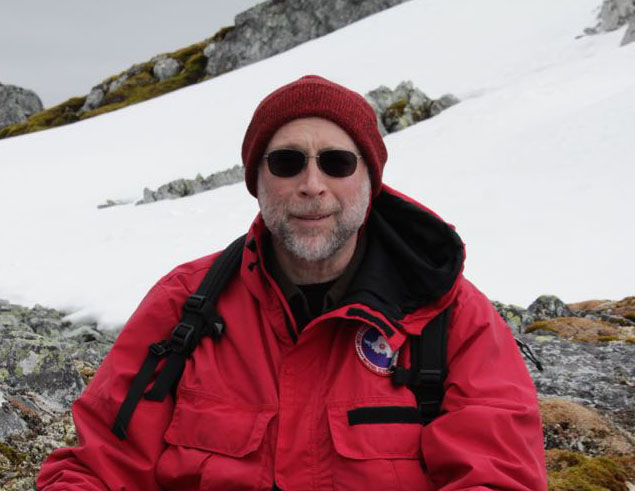Professor Richard Lee
Extreme cold-adapted creatures: flies that freeze

Rick Lee
The largest terrestrial animal in the Antarctic spends its two-year larval stage frozen in the polar ice for as much as six months at a time, before emerging for 10 days to mate and lay eggs on the surface before dying.
Since 2004, University Distinguished Professor of Biology Richard Lee has studied this extremeophile, the Antarctic midge, Belgica antarctica. This wingless midge is the only true insect found on Antarctica, and it is considered the continent’s largest terrestrial animal (it’s only 2-6 mm, less than a quarter of an inch long).
Its unusual survival mechanisms include the ability to tolerate freezing and dehydration, surviving the loss of 70 percent of their body water, Lee said. Most animals won't survive losing more than 20 percent.
Lee is internationally recognized for his research on physiological and ecological mechanisms of cold tolerance, dormancy and the winter ecology of temperate and polar insects and other ectotherms.
His field research includes work on Ellesmere Island in the High Arctic and 10 field seasons on the Antarctic Peninsula — his most recent research expedition was just last year.
Lee was also part of a team that sequenced the genome of B. antarctica — the first for an Antarctic animal.
As the first polar insect and first freeze-tolerant insect to be sequenced, B. antarctica offers a new opportunity for studying extremophile biology and insect genome evolution.
Lee’s research in Antarctica has been funded continuously by the National Science Foundation with more than $3 million since 2004.
Lee’s research in cryobiology extends from the South Pole to Miami’s backyard, where he collaborates with Jon Costanzo, adjunct professor of biology, and student researchers to study the wood frog, which can freeze solid in winter.
Lee has published more than 300 refereed journal articles, reviews and book chapters and he has edited or authored four books. He holds a patent for the use of ice nucleating microorganisms for biological control.
Lee is also active in providing professional development opportunities for teachers, receiving more than $2.7 million in grants to support these activities. For 15 years, he co-directed an environmental science program for Ohio elementary teachers taught at a field station in Wyoming.
His honors include the Benjamin Harrison Medallion from Miami University, and election as a Fellow of the Royal Entomological Society of London and the American Association for the Advancement of Science.

